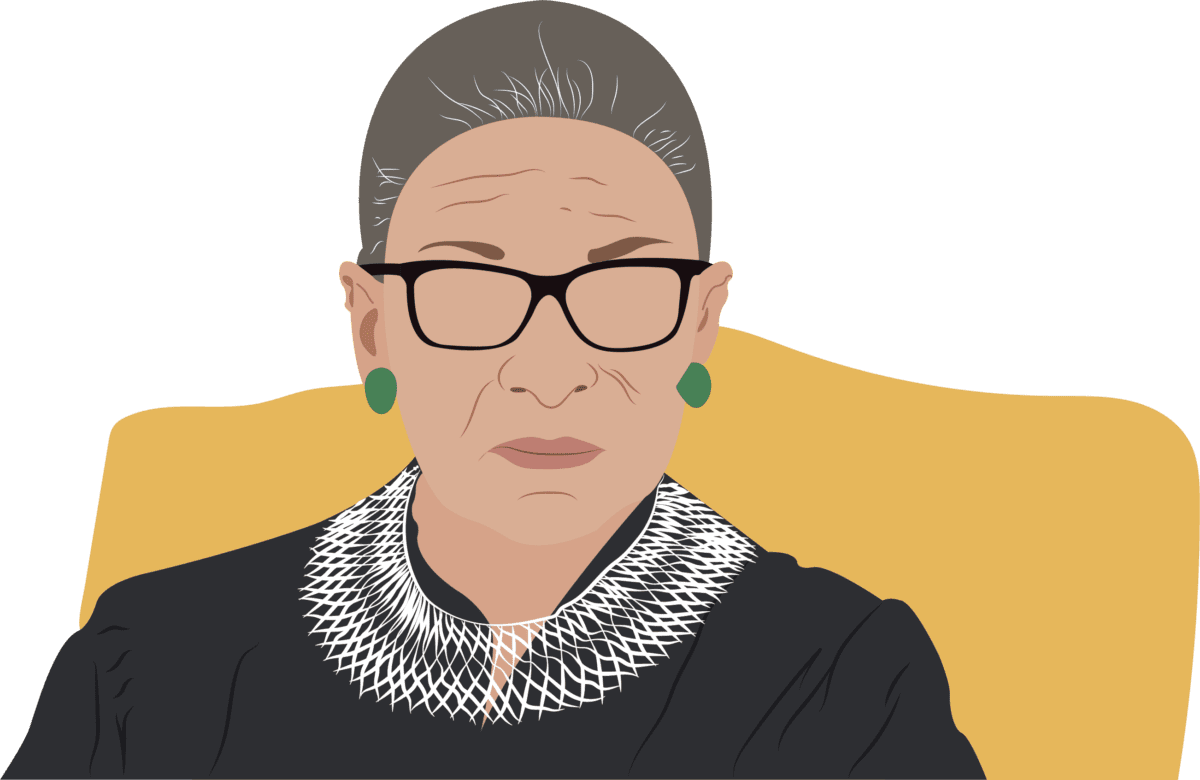For those of us across the pond, American politics is a passionate, divisive, and often bizarre spectacle. The death of Supreme Court Associate Justice Ruth Bader Ginsburg shocked the world, not only because of the loss of a civil rights icon and her inspirational legal career, but also because of its political and legal consequences. A vacant seat on the most significant legal body in the United States has added another potential prize into an election that many Americans see either as an opportunity to return to normality or an opportunity to strengthen Trump’s presidency.
The theatrics (Senator Cory Booker’s comparison of himself to Spartacus) and moral quandaries (the ethics regarding allegations of the past criminal misconduct in judicial appointments) of Justice Brett Kavanaugh’s Senate hearing is still fresh in my mind. Given Trump’s promise to appoint a female Justice with just over 40 days to go before the election, I expect the oncoming hearings to be just as extraordinary as the last. For those of you who don’t fully understand the approaching political drama about to play out in the Senate and on the campaign trail, I have attempted to outline the many positions of Republicans and Democrats towards Trump’s attempt to appoint a third justice.
President Trump and Senate Republicans are faced with an unprecedented opportunity to appoint three Supreme Court justices in nearly the same amount of years. Bearing in mind that justices serve until death (such as Ginsburg or Scalia), Trump could be able to appoint a third of the Supreme Court for the next 30 years. President Trump has been quick to act, and his nominee is expected to be announced in the next few days.
Senate Republicans are faced with a dilemma between further shifting the political alignment of the court in their favour or retaining a precedent that if broken could politically damage their image in their constituencies. Senate Republicans were vocal about establishing a precedent in 2016 when they denied President Obama the ability to appoint Merrick Garland to the Supreme Court. Ostensibly, the precedent was established over concerns about the mandate of the President and the Senate in an election year.
The current chairman of the Senate Judiciary Committee, Lindsey Graham, has previously stated on the record that he is in favor of retaining the precedent and multiple Republican Senators have pledged not to vote in favour of Trump’s appointee. Many of the Senators are up for reelection and are campaigning against well-funded Democrats that will take every advantage of a reversal in position on such an important issue.
For those worried or elated about the prospect of a conservative court, the political position of the court is less than straightforward. The appointment of a justice does not necessarily mean that Republican party policies will gain further legal legitimacy, or that the court will move from its currently moderately conservative position. While some justices are more ‘conservative’ than others, ‘conservative’ jurisprudence is vastly different from political conservatism and relates more to justices’ interpretations of the Constitution. While Brett Kavanaugh is regarded as a moderately ‘conservative’ Justice, he has sided with ‘liberal’ Justices Breyer and Kagan to the same degree that he has sided with Trump’s ‘conservative’ pick Justice Neil Gorsuch.
Ginsburg’s death presents a real test of the precedent, and it is likely that the primary challenge of the oncoming confirmation process will boil down to the payoffs for elected officials between a chance of a more conservative leaning court or retaining the precedent. It is likely that the appointment process will be impeded in the Senate hearing stage as Democrats attempt to stall the process and Republicans iron out their positions on the appointment. For us in Australia, it means another political cage match from a country that can’t seem to have enough of them.
Think your name would look good in print? Woroni is always open for submissions. Email write@woroni.com.au with a pitch or draft. You can find more info on submitting here.
We acknowledge the Ngunnawal and Ngambri people, who are the Traditional Custodians of the land on which Woroni, Woroni Radio and Woroni TV are created, edited, published, printed and distributed. We pay our respects to Elders past and present. We acknowledge that the name Woroni was taken from the Wadi Wadi Nation without permission, and we are striving to do better for future reconciliation.
